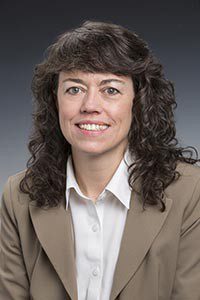
By Donna Schantz
Executive Director
The Oil Pollution Act of 1990 notes congressional findings from the Exxon Valdez oil spill. Included in those findings was the need to foster the long-term partnership of industry, government, and local communities. This is a key piece of the foundation on which the Council was formed.
The Council may not always agree with industry and regulators, but we strive to maintain positive working relationships and build trust. While we do not hesitate to raise concerns when we perceive potential rollbacks in oil spill prevention and response safeguards, it is just as important to recognize when we are in agreement.
I am pleased to report the Council will be supporting Alyeska in a recent appeal they filed with the Environmental Protection Agency (EPA) (page 2). Our independent review verifies that systems Alyeska currently has in place at the Valdez Marine Terminal capture over 99% of the emissions addressed by the rule – a higher reduction goal than is currently being required. The Alaska Department of Environmental Conservation (ADEC) has also voiced support of Alyeska’s appeal to the EPA.
This collaborative approach goes both ways. For example, after months of coordination, Alyeska has also agreed to support a project proposed by the Council to look at the chemical composition and concentration of oxygenated hydrocarbons released from the terminal. Oxygenated hydrocarbons are less studied than other hydrocarbon products and they are potentially toxic in the aquatic environment. Revisions to the scope of work were necessary to satisfy Alyeska’s concerns, mostly related to COVID impacts and their desire to focus resources on their priority operational goals. This is another example of how good communication, strong relationships, and a willingness to work together can lead to solutions that support everyone’s goal of moving oil safely.
There are concerns with the integrity of the secondary containment liner at the Valdez Marine Terminal that we hope can be addressed in a similar fashion. In January, the Council requested an adjudicatory hearing with ADEC in support of the department’s decision to require additional evaluation and testing of the liner. Alyeska also requested a hearing seeking to remove any requirement for further liner testing.
Secondary containment systems are required by Alaska regulation to hold oil in the event of a spill from a tank or pipe until the spill can be detected and cleaned up. The protection of groundwater and Port Valdez, in the event of a breach of one of the terminal’s large crude oil storage tanks, is dependent largely on the integrity of the liner, so it is of critical importance that the liner be inspected to ensure there are no cracks or holes.
For two decades the Council has voiced concern over the ability of the secondary containment liners within the system to meet regulatory standards. The liners were installed during original construction of the terminal, 45 years ago, and the type of liner installed then would not be allowed by regulations today. Additionally, when relatively small sections of the liner have been inspected over the years during other maintenance work, damage to the liner has been discovered. The Council’s persistent calls for more rigorous evaluation and testing, or even replacement of the liner, have not been adequately addressed.

The Council is hoping to find a more collaborative approach to addressing our concerns with the secondary containment liner, in lieu of a hearing. Regardless of how this process proceeds, the ultimate goal is to work together with industry and regulators to give citizens a voice in decisions that impact the safe operation of the terminal and tankers in Prince William Sound.
We often share the following quote from the Oil Pollution Act of 1990 congressional findings, “Only when local citizens are involved in the process will the trust develop that is necessary to change the present system from confrontation to consensus.” We will continue to try and work together with industry and regulators to find solutions that improve oil spill prevention and response.